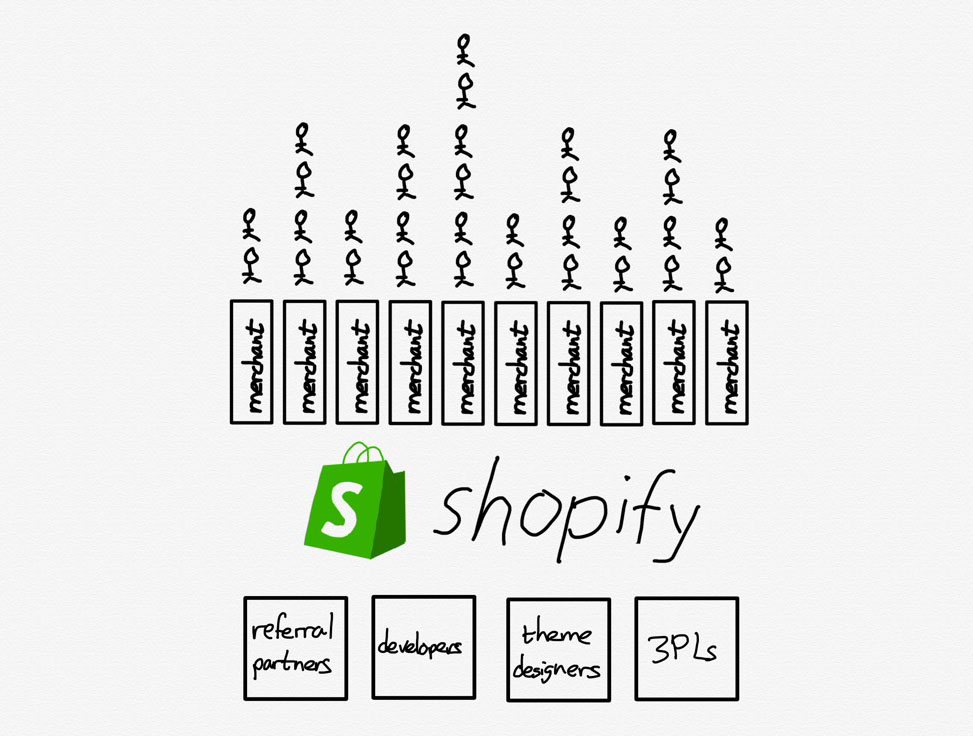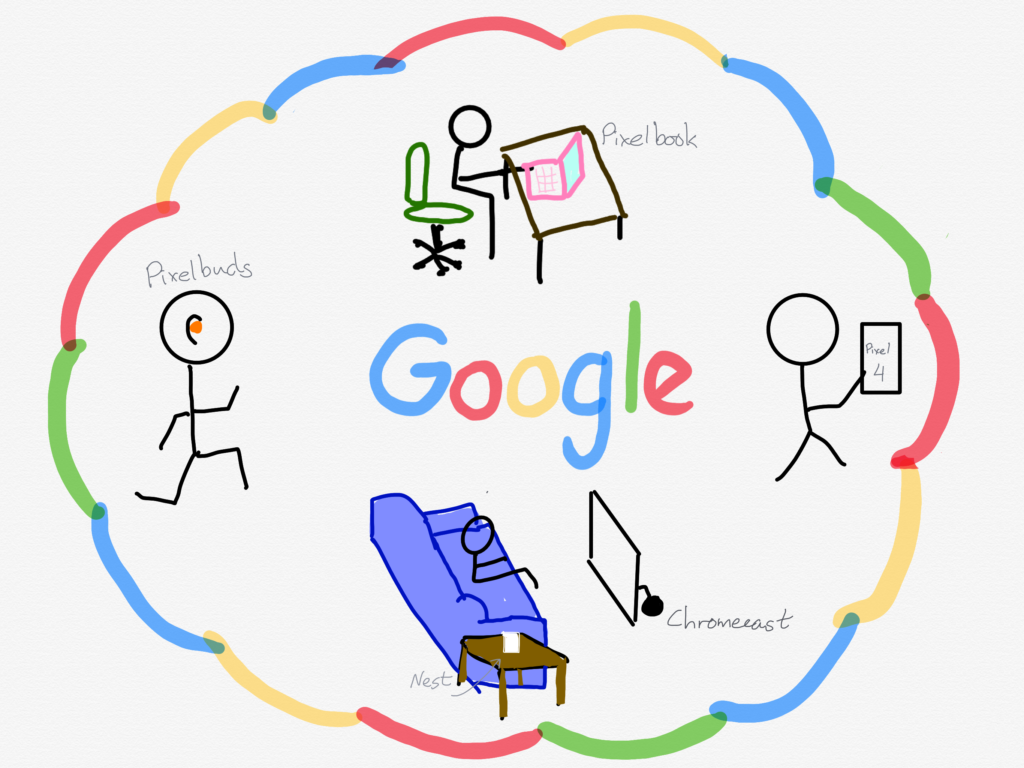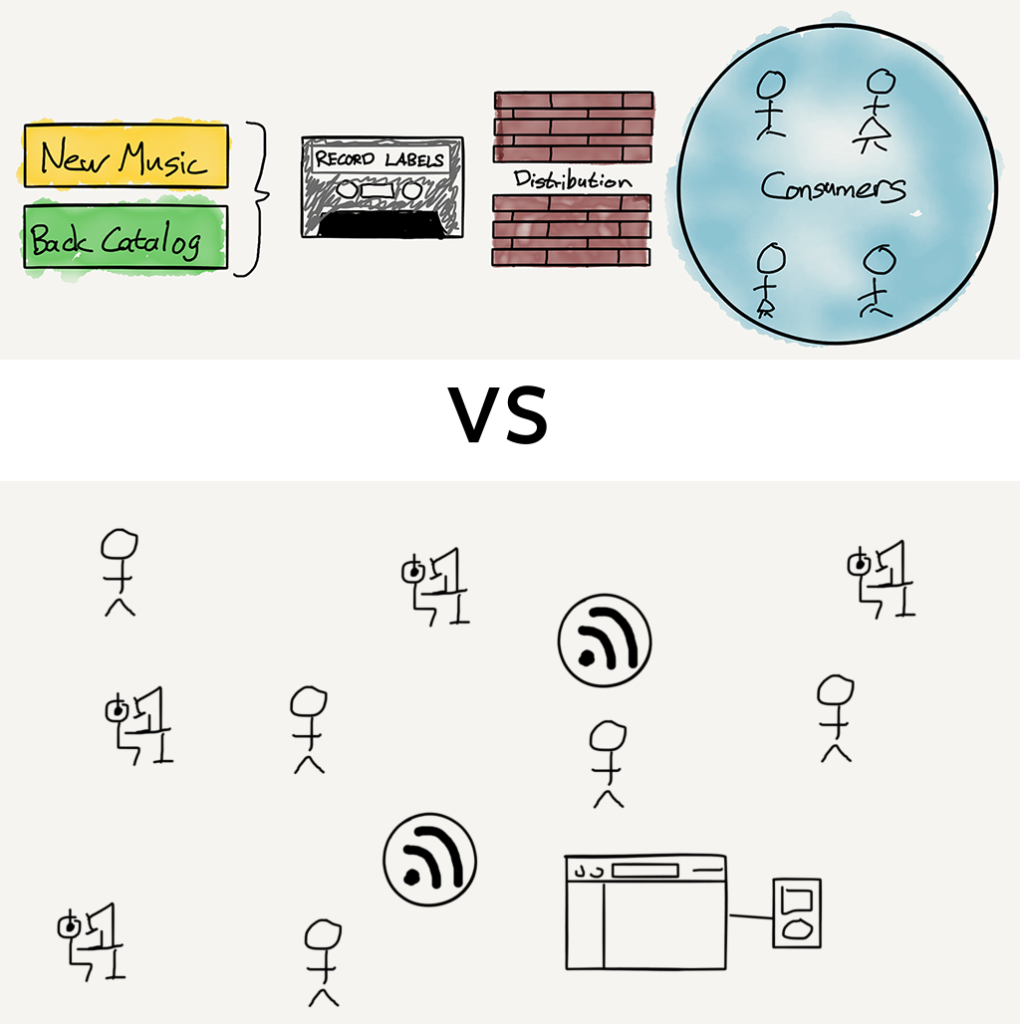The 2019 Stratechery Year in Review
The 2019 Stratechery Year in Review
2019 was a transition year for me personally, and by extension, Stratechery. The nadir was an Article I regret — The WeWork IPO — where, despite not believing in the company, I wrote the contrarian take because it seemed more interesting (my full mea culpa is here ). It was not a healthy approach, but, six years after starting Stratechery, and five years of it being my full-time job, it was perhaps an understandable one.
The turning point was The China Cultural Clash ; writing about the crisis surrounding the NBA in China and the implications for the technology industry reminded me of something I had started to forget in my attempt to be even-handed and dispassionate in my analysis: values matter, and there is a freedom that comes from recognizing and articulating those values. Indeed, honesty about values makes analysis better, because underlying assumptions are pushed to the forefront, instead of fading to the background — and, I’d add, it is invigorating! On to 2020!
This year I wrote 139 Daily Updates (including tomorrow) and 36 Weekly Articles , and, as per tradition, today I summarize the most popular and most important posts of the year.
You can find previous Stratechery Years in Review here: 2018 | 2017 | 2016 | 2015 | 2014 | 2013
Here is the 2019 list.
The Five Most-Viewed Articles
- The WeWork IPO — This, to be perfectly frank, is brutal: I not only regret this article for being insufficiently negative (although, for the record, I was clear I would not invest in WeWork), but now also have to face the fact it was my most popular post of the year. Related: Uber Questions , which took the boring skeptical approach to an S-1 I should have repeated.
- The Google Squeeze — Google, the real Aggregator, is squeezing OTAs, which acted like Aggregators while depending on Google for demand. It’s easy to say Google is being unfair, but this may be better for consumers.
- Shopify and the Power of Platforms — It is all but impossible to beat an Aggregator head-on, as Walmart is trying to do with Amazon. The solution instead is to build a platform like Shopify.
- Disney and the Future of TV — TV is moving from a world where distribution dictates business models to one where business models need to fit the jobs consumers want done. That is the best way to understand Disney’s latest announcement.
- AWS, MongoDB, and the Economic Realities of Open Source — Amazon’s latest offering highlights the economic challenges facing open source companies — and Amazon should pay attention.
Lessons Learned
The good thing about making mistakes is that it is an opportunity to learn; two of these articles are directly connected to WeWork.
- Neither, and New: Lessons from Uber and Vision Fund — Uber represents something new: a company that is different than incumbents because of technology, yet not itself a tech company — just like the Vision Fund is not a VC.
- What is a Tech Company? — The question of “What is a tech company” comes down to how much software and its unique characteristics affects the company’s core business.
- The Value Chain Constraint — Companies succeed or fail not based on technology but rather according to their ability to integrate within their value chains.
Values and Society
Almost all decisions involve trade-offs; the most difficult are those that require understanding and prioritizing our values.
- The Internet and the Third Estate — Mark Zuckerberg suggested that social media is a “Fifth Estate”; in fact, social media is a means by which the Third Estate — commoners — can seize political power. Here history matters. Related: Tech and Liberty and the policing of political speech.
- The China Cultural Clash — The NBA controversy in China highlights a culture clash that both tech companies and the U.S. government need to take to heart. Plus, why Tiktok being Chinese is increasingly a problem. Related: China, Leverage, and Values , about the trade war.
- Privacy Fundamentalism — The current privacy debate is making things worse by not considering trade-offs, the inherent nature of digital, or the far bigger problems that come with digitizing the offline world.
Regulation and Antitrust
While regulation was also a theme in 2018, this year I tried to get much more specific about how to think about the challenges presented by the Internet.
- Where Warren’s Wrong — Senator Warren’s proposal about how to regulate tech is wrong about history, the source of tech giant’s power, and the fundamental nature of technology itself. That doesn’t mean there aren’t real problems — and potential solutions — though.
- Tech and Antitrust — A review of the potential antitrust cases against Google, Apple, Facebook, and Amazon suggests that only Google is vulnerable.
- Three Frameworks:
- A Framework for Regulating Content on the Internet — Regulators need to stop blindly regulating “the Internet” and instead understand that every part of the Internet stack is different, and only one part is suffering from market failure.
- A Framework for Moderation — The question of what should be moderated, and when, is an increasingly frequent one in tech. There is no bright line, but there are ways to get closer to an answer.
- A Framework for Regulating Competition on the Internet — Understanding the differences between platforms and Aggregators is critical when it comes to considering regulation.
The Big Tech Companies
Tech’s continued centralization means that the biggest companies — Microsoft, Apple, Google, Amazon, and Facebook — receive the largest scrutiny.
- Microsoft, Slack, Zoom, and the SaaS Opportunity — The Zoom and Slack IPOs show what Microsoft is missing in its growth story: a way to acquire new customers.
- The First Post-iPhone Keynote — This year’s WWDC presented an Apple that was finally ready to move past the iPhone. Related: Apple’s Errors and The iPhone and Apple’s Services Strategy .
- Google and Ambient Computing — Google presented a vision of ambient computing that goes beyond the smartphone. The company is well-placed, but faces challenges both in the marketplace and in the mirror. Related: Beachheads and Obstacles and Google Fights Back .
- Day Two to One Day — Amazon.com was showing signs of being a Day Two company, including the alleged manipulation of search. There is reason, though, to be optimistic that the company has gotten back to Day One. Plus, where are the other big tech companies?
- Facebook’s Privacy Cake — Mark Zuckerberg’s announcement of A Privacy-Focused Vision for Social Networking is not some dramatic pivot: it is a growth opportunity for Facebook and a challenge for regulators. Related: Facebook, Libra, and the Long Game .
Media and Technology
The most important development of the year in media was the launch of Disney+; I already linked to Disney and the Future of TV . Also:
- Netflix Flexes — Netflix is an Aggregator, with a value chain that lets it drive demand, raise prices, and dismiss competition.
- Spotify’s Podcast Aggregation Play — Spotify is making a major move into podcasts, where it appears to have clear designs to be the sort of Aggregator it cannot be when it comes to music.
- The BuzzFeed Lesson — The lesson of BuzzFeed is that dominant Aggregators like Facebook have no incentive to act against their self interest and support suppliers. Related: The Cost of Apple News .
The Year in Daily Updates
This year the Daily Update not only continued the trend towards single topics, but often became the place where new ideas and future Weekly Articles were first presented and fleshed out. I’m really proud of this evolution — this was a hard list to cull. Some of my favorites:
- The Alexandria Ocasio-Cortez Phenomenon, Ninja’s 2018, Facebook and the Human Condition — The connection between Alexandria Ocasio-Cortez, Ninja, and Facebook’s scandals
- Pinterest S-1, Zoom S-1, The Enterprise-Consumer Flip-Flop — Pinterest’s S-1 shows why too much funding can be bad for startups, while Zoom’s S-1 shows the benefits the come from being great. That, by extension, is a result of the enterprise and consumer markets flip-flopping.
- Disney Takes Full Control of Hulu, Disney’s Organization, The Streaming Struggle — Disney has acquired control of Hulu, and has structured itself to take full advantage. Other streaming services, though, are not nearly as well-positioned.
- The Problem with “Aggregation Theory”, Demand at Scale, Supplier Power and Value — A response to The Problem with Ben Thompson’s ‘Aggregation Theory’ , and why the Internet really is different.
- AMD Launches 7nm Chips, Sony Partners with Microsoft, Apple and AWS — AMD leapfrogs Intel thanks to modularity, Sony partners with Microsoft thanks to scale, and Apple balances both.
- Libra’s Questionable Benefits, Facebook’s Hidden Costs, Philosophical Objections — While Facebook, Libra, and the Long Game was about analysis, this Daily Update is about opinion: I don’t think Libra is a good idea. Related: Libra in Congress; Global Community, Revisited; Messianic Versus Money-Making .
- Jony Ive Leaves Apple, Ive’s Legacy, The Post-Ive Apple — Jony Ive is leaving Apple: how it happened, Ive’s legacy, and what it means for Apple going forward.
- Facebook’s FTC Fine, Apple and Microsoft’s Mistake, IBM’s Unbundling — Facebook’s FTC fine is being pilloried, but it really is large and unprecedented. Plus, why Facebook critics were asleep at the wheel. Then, Microsoft saving Apple has an analogy to IBM, and is a potential argument in favor of antitrust action. Related: Facebook’s FTC Settlement, Assigning Blame, Facebook’s Earnings .
- Microsoft’s Earnings, Teams Passes Slack, The Partner Advantage — Microsoft continues to crush earnings with its integrated approach. Then, Teams passed Slack, and its lead will likely widen, because it is a sustaining technology, not a disruptive one. Plus, the importance of Microsoft partners.
- Why Cloudflare Matters, The Absence of Gatekeepers, Promotion Versus Moderation — More on moderation, including why Cloudflare is important systematically, a reminder that there are no more gatekeepers, which means moderation is always reactive, and why Facebook and YouTube still deserve the most scrutiny.
- Apple Versus Project Zero, Apple’s Poor Response, The China Paradox — Apple took on Google’s Project Zero over the weekend, and didn’t come out looking particularly good, particularly since China is a huge paradox for Apple. Related: Apple Pulls Hong Kong App, Tim Cook’s Memo, Honesty and Control .
- Child Sexual Abuse Material Online, The Problem With Community, Towards More Friction — A horrifying article on Child Sexual Abuse Material online is actually a sign that Facebook is doing the right thing, at least for now. Encrypting private communications, though, may make things worse.
- Facebook’s All-Hands Leak, Facebook Versus Warren, Zuckerberg’s Culture — The most newsworthy aspect of Facebook All-Hands leak is what its existence says about Facebook itself. What is most interesting, though, are not the comments about Elizabeth Warren but what Mark Zuckerberg showed about himself.
- Microsoft’s Surface Event, Victors and History, Microsoft’s Hardware Prospects — Microsoft (eventually) selling a phone that runs Android is not particularly meaningful in terms of its impact financially but is a totem of a major shift culturally.
- Trump Visits Mac Pro Factory, Apple’s Tariffs, Apple Versus GitHub — Trump visited the Mac Pro factory, and people are disappointed in Tim Cook. First off, tariffs are certainly the driving fact, but I am disappointed too, for different reasons than most.
- Facebook Buys Beat Saber, Capital and Copyright, The Oculus Conundrum — Facebook has bought Beat Games, a company of the future, and not just because they made a game for VR. Then, why it is the old world that needs capital, and why Oculus is still confusing strategically.
- AWS re:Invent; Transformations, Transitions, and Databases; Amazon Outposts — The AWS re:Invent keynote was quite compelling, as Amazon made the case for enterprises to not simply transition to the cloud but to transform their approach to IT — which, of course, favors Amazon.
- TV Advertising Falls; The Sports Linchpin, Revisited; NBA Ratings — TV Advertising is down, as price increases finally overwhelm the decline in viewers. It’s important to note, though, that sports still matter. This is something the NBA may not completely understand.
- Cisco Sells Chips, The Conservation of Attractive Networking — Cisco is selling chips, which is a fascinating example of the Conservation of Attractive Profits.
- SBNation and AB5, Understanding SB Nation, AB 5 and the Internet — SB Nation is a publishing company that was only ever possible because of the Internet. That it has to change its model because of AB 5 shows why AB 5 is fundamentally flawed.
I also conducted six interviews for The Daily Update:
- Zillow CEO Rich Barton
- Microsoft CEO Satya Nadella
- Facebook’s Kevin Weil and Dante Disparte on Libra
- Substack Co-Founders Christopher Best and Hamish McKenzie
- Cloudflare CEO Matthew Prince
- Ghost CEO John O’Nolan
I can’t say it enough: I am so grateful to Stratechery’s readers and especially subscribers for making all of these posts possible. I wish all of you a Merry Christmas and Happy New Year, and I’m looking forward to a great 2020!
文章版权归原作者所有。










